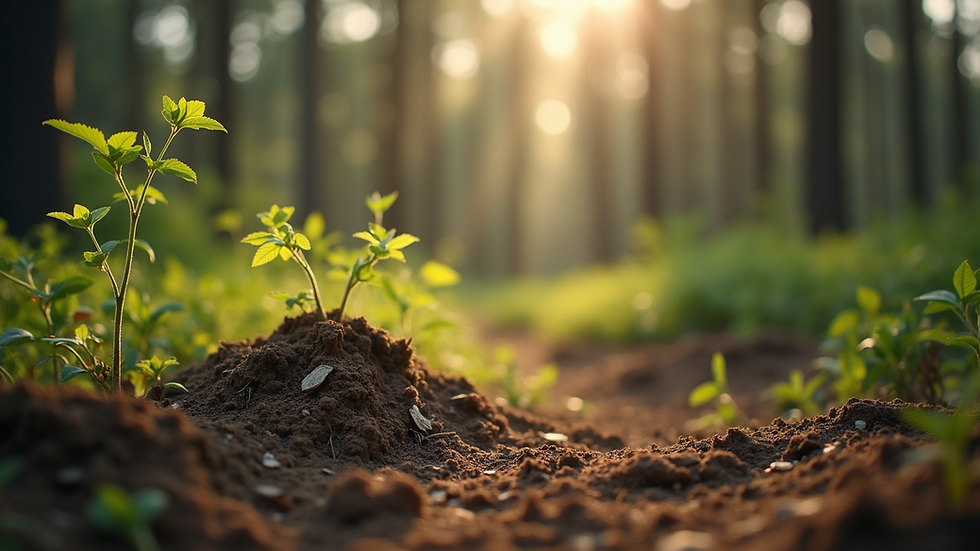The Importance of Sustainable Tropical Hardwoods
- alijah47
- Jun 10, 2025
- 3 min read
Tropical hardwoods are more than just visually appealing materials; they play a crucial role in environmental sustainability and the economy. Globally recognized for their strength and beauty, tropical hardwoods offer essential benefits when sourced responsibly. This blog will delve into the significance of sustainable tropical hardwoods, exploring their ecological impact, economic advantages, and ways to choose responsibly sourced timber.
Understanding Tropical Hardwoods
Tropical hardwoods are derived from trees found in tropical climates, primarily in regions such as Central and South America, Africa, and Southeast Asia. Known for their density and durability, these woods are extensively used in furniture making, flooring, and construction. Popular species include teak, mahogany, and mahogany, each offering unique characteristics.

One of the critical aspects of tropical hardwoods is their longevity. When properly cared for, products made from these woods can last for generations, reducing the need for replacements and conserving resources.
However, unsustainable harvesting practices threaten these valuable resources. Fortunately, organizations and companies are working to ensure that the production of tropical hardwoods does not compromise the health of the planet.
The Ecological Impact of Sustainable Practices
Sustainable tropical hardwoods are harvested in ways that protect the environment and conserve natural resources. When sourced responsibly, tropical hardwoods can contribute positively to the ecosystem.
Biodiversity Conservation: Sustainable forestry practices help maintain biodiversity within tropical forests. By selectively harvesting trees rather than clear-cutting, these practices preserve habitats for countless species.
Carbon Sequestration: Forests are essential for carbon capture. Trees absorb carbon dioxide, helping to mitigate climate change. By maintaining healthy forest ecosystems through sustainable logging, we can maximize this natural climate control.
Soil and Water Protection: Tropical hardwood forests play a crucial role in preventing soil erosion and maintaining water quality. Sustainable management practices protect these ecosystems while still allowing communities to utilize their resources.

Investing in sustainable tropical hardwood practices is not just good for the environment; it provides a pathway to cultivate healthier forests for future generations.
Economic Advantages of Sustainable Tropical Hardwoods
Tropical hardwoods are not only valuable for their environmental benefits but also for their economic contributions. Sustainable forestry practices can lead to enhanced economic stability for communities that rely on these resources.
Local Job Creation: Sustainably managed forests can create jobs in harvesting, processing, and distribution. This not only supports local economies but also fosters a commitment to responsible forestry.
Market Demand: As awareness of sustainability grows, consumers are increasingly willing to invest in eco-friendly products. Tropical hardwoods certified by organizations like the Forest Stewardship Council (FSC) often command higher prices, benefitting producers who prioritize sustainable practices.
Long-Term Viability: Sustainable practices ensure that forests can regenerate, providing a continuous supply of timber. This stability is crucial for businesses that depend on these resources, allowing them to plan for the long term.

By aligning economic practices with environmental stewardship, communities can thrive while protecting their natural resources.
Responsible Sourcing of Tropical Hardwoods
Choosing sustainable tropical hardwoods is essential for consumers and businesses alike. Here are some actionable tips for ensuring you're supporting responsible forestry practices:
Look for Certifications: Opt for wood products that have been certified by reputable organizations. The FSC label is a reliable indicator of sustainable sourcing practices.
Research Suppliers: Consider purchasing from suppliers who prioritize sustainability. Companies such as diamond tropical hardwoods telford specialize in ethically sourced timber and can provide information about their sustainable practices.
Understand the Species: Not all hardwood species are created equal. Be informed about which tropical hardwoods are more sustainable and which are endangered or overharvested.
Support Local Artisans: Where possible, support local craftspeople who use sustainable hardwoods. This not only boosts local economies but also helps reduce the carbon footprint associated with transporting goods.
Educate Yourself and Others: Awareness is key. Share knowledge about sustainable practices in tropical hardwood sourcing to inspire others to make environmentally conscious choices.
Embracing the Future of Tropical Hardwoods
As we become increasingly aware of the environmental challenges facing our planet, the importance of sustainable tropical hardwoods continues to grow. By valuing and advocating for sustainable forestry practices, we can ensure that tropical hardwoods remain available for future generations.
The demand for sustainable materials is not just a trend; it's a movement towards a responsible economy that balances human needs with ecological health. Embracing this approach can enhance the beauty of our spaces while contributing to a sustainable world.

By making informed choices about tropical hardwoods, consumers and businesses can play an essential role in protecting this vital resource. Together, we can foster a more sustainable and prosperous future, respecting the delicate balance of our planet's ecosystems.




Comments